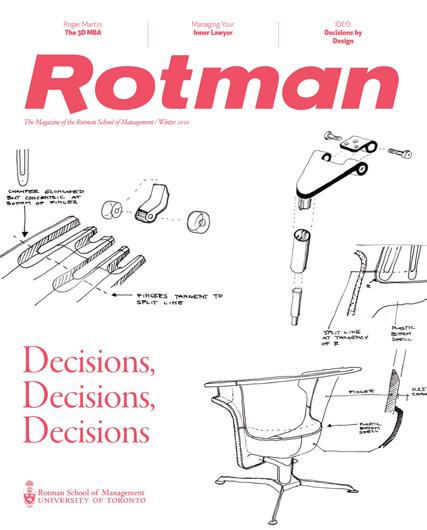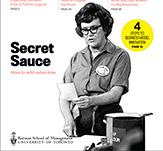Q &A
How do you define ‘eco-anxiety’?
Eco-anxiety is an emotional response to the environmental crisis, and in addition to anxiety it includes other challenging emotions such as grief, anger, sadness, fear and depression. This phenomenon is showing up in a wide variety of people who are particularly impacted by the crisis. This includes those on the front lines of weather disasters, who are already experiencing these hazards and fear what will come next; people whose work focuses on the crisis, from environmental journalists to scientists and anyone else who has their eyes open to the implications of the science day in and day out; and young people around world, whose futures will be deeply affected. Many young people feel abandoned by adults, who in their view are not doing enough to slow down a climate catastrophe. Despite the data, a global emergency has yet to be declared, and that is what is needed to create the infrastructure, investments and focus to safeguard the climate and maintain peoples’ well-being.

A human and planetary health expert describes how ‘eco-anxiety’ is impacting people— especially our youth.
Interview by Karen ChristensenQUESTIONS FOR Britt
Wray,Post-Doctoral Fellow, Stanford, and Author, Generation Dread
The sentiment of our times has been described as ‘broken-record record-breaking.’ Please explain. Many readers will have experienced this feeling, which arises from seeing media headlines over and over reporting that temperature records are being broken around the world. The term was actually coined by an artist group called the Bureau of Linguistical Reality, which is coming up with new terms to describe our rapidly changing planet.
Tell us about the research you did last year, focusing on young people.
My colleagues and I did a study of 10,000 young people aged between 15 and 25 around the world, including the U.S., UK, France, Finland, Nigeria, the Philippines, Brazil, Portugal, Australia and India. Across these low-, middle- and high-income settings — which have experienced a diversity of exposure to climate disasters — 45 per cent reported that their feelings about the climate crisis are negatively impacting their ability to function on a daily basis. This includes everything from eating to sleeping, concentrating and the ability to have fun. The climate crisis is taking up so much space in their consciousness and causing so much distress that they’re having a really hard time.
We found that this impaired functioning was much higher in lower-income countries with greater exposure to climate disasters already. These young people are literally feeling the heat of this breathing down their necks. But even those who live in more privileged and protected environments are not immune to this distress. A great majority reported feeling sad, anxious and afraid, and said this issue has a huge impact on their thinking about the future: 75 per cent told us the future is ‘frightening’; 56 per cent agreed with the statement ‘humanity is doomed’; and perhaps most moving, 39 per cent said the crisis is making them hesitant to have children of their own.
Importantly, our results also showed that young people feel abandoned by the institutions and powerholders who are supposed to be protecting their futures. They told us they long for institutions and governments to step up, stand with
them in solidarity and create some bold policies. Of course, corporate leaders have a role to play in helping ease some of the distress young people are feeling. For example, they can invest only in products, services and strategic directions that support a future where today’s youth — and tomorrow’s — can thrive.
What does the global response to COVID-19 tell us about climate-crisis preparedness?
The global response to the pandemic actually provides some hope around our ability to respond to a crisis in a concerted, coordinated way. The entire world went into lockdown at the same time, with countries doing whatever was needed to protect public health. Governments funded emergency responses and we saw vaccines being developed and made widely (though inequitably) available in an unimaginably short time frame. Collectively, this was an incredible set of accomplishments and investment in mass social coordination and the collective good. So we know that this is possible. What needs to be done on the climate front is not that different: all of our resources and efforts must be put towards addressing this threat, which, like a pandemic, could very well annihilate our ability to live on this planet. We need coordination between governments and public/private partnerships between academia, industry and government to figure out how to mitigate the harms that can still be mitigated. Not all of them can, of course, but we can still prevent some through mitigation while enacting adaptation policies and equitable efforts that allow those who have already been impacted get immediate support. We should also make the worst-offending corporations and the most highemitting countries face financial reparations. All of these things should be wrapped into a global emergency response. Instead, we’re seeing a lot of quibbling and political stalling. Remember, throughout the pandemic, people didn’t all agree on the right approach for dealing with it. There were disagreements over everything from mask mandates to shutdowns and vaccinations, and it got pretty heated in some places. The response wasn’t perfect, but overall, the
Nearly half of young people reported that eco-anxiety is negatively impacting their ability to function on a daily basis.
results were very impressive in terms of what we were able to accomplish by combining science, innovation and political will. With the pandemic, there was simply no time to spare, and the same is true here.
Describe the difference between ‘internal activism’ and ‘external activism.’
Typically when we talk about activism we’re referring to external activism: varying degrees of civil disobedience and joining with others to push for policy change. All of that is vital to addressing the climate crisis. However, lots of people are becoming so overwhelmed by all the bad news that they are deterred from getting involved in the first place. And those who do get involved can easily burn out.
We all need to process some of the anxiety, grief and depression that come with this threatening situation, and learn how to live with it. This is what psychologist Caroline Hickman calls internal activism, and it is just as important as external activism. The trick is not to get lost in the dark places that internal activism brings us — to keep moving — and to welcome the idea that we’ll cycle through the trenches again, because this crisis isn’t going anywhere anytime soon.
Internal activism is a set of self-care practices and forms of emotional coping that enable people to tap into purpose and meaning around this crisis so they can bear witness to all the tough stuff, find agency amid it and not fall apart. Personally, The Good Grief Network enabled me to practise internal activism at a level of depth, and to have faith that this story is far from over. It equipped me with strategies I can use when I get too wound up in pessimistic thoughts, and pointed out the tools I have at my disposal to positively contribute to the world. We really need more of this, or we will lose many advocates from the mental exhaustion of this work.
What are the first steps to finding a balance between hope for the future and fear of it?
It can be hard to talk about what’s going on with colleagues or friends without having the concern minimized, brushed
off or shifted to another topic. We don’t have a permissiongiving culture in terms of having open, authentic and vulnerable conversations about how this crisis lives inside each of us. Hundreds of people I’ve spoken with have told me the most powerful thing that happened for them when they were trapped in fear was simply finding the right people with which to have frank conversations, which allowed them to feel validated and legitimized their feelings.
There are groups popping up everywhere to help people have these conversations, whether it be climate cafés or climate-awareness therapy groups. We’re seeing more and more environmental groups with an emotional component so people can get things off their chest in an accepting environment. There are a lot of places to plug in and get a foothold in order to bring your talents and energies to addressing this crisis.
Obviously, hope is a good thing, but if you’re clinging to positivity without letting the dark side in at all, that can lead to a ‘two-inch-deep’ sort of approach, which isn’t very helpful. We can’t make progress by blocking out what is increasingly evident from all the science around us, let alone our observations from daily life.
If every business leader could do one thing tomorrow, what would you like it to be?
First on my list would be this: stop optimizing for growth and start optimizing for a livable planet and for humanity’s wellbeing. These are huge issues we’re dealing with, and whether or not your sales revenue increases this year by X% won’t really matter if, in five or ten years, your entire supply chain is disrupted by a climate catastrophe.
Leaders need to be able to look this crisis in the eye and understand their role, not just in terms of carbon impact, but of overall environmental and human well-being impact. What are your products and services doing for the climate and its effects on human health? What about your supply chain? What steps can you take to get on the right side of history with this problem, despite the damage that bottom line calculations might reinforce? And how can you support
Whether or not your sales revenue increases this year won’t matter if your entire supply chain is disrupted by a climate catastrophe.
young people with the considerable distress they’re experiencing about the world they are inheriting? These are questions that must be addressed in the business arena.

You became pregnant while writing your book. Is that the ultimate sign of hope? It’s a hopeful act because it is a commitment to the idea that it isn’t too late — and yet, the act of bringing life into the world at a time when we must learn how to face ongoing losses is a dangerous dance. That is why, since I got pregnant, the tenor of my advocacy for climate justice has become even fiercer. My son and other children his age will never know a day without climate breakdown and ecological degradation as being part of their reality, but we will have to wait and see how that will inform their future dreams, actions and decisions. In the meantime, there is plenty we can all do to mitigate further damage to our environment.
Britt Wray is a Human and Planetary Health Postdoctoral Fellow at the Stanford Center for Innovation in Global Health, Stanford Woods Institute for the Environment and London School of Hygiene & Tropical Medicine Centre on Climate Change and Planetary Health. She is the author of Generation Dread: Finding Purpose in an Age of Climate Crisis (Penguin Random House, 2022). She holds PhD in Science Communication and Synthetic Biology from the University of Copenhagen and produces a weekly newsletter about “staying sane in the climate crisis” (gendread.substack.com).































